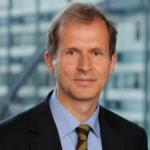Since it’s release in late 2013, the European Bank for Reconstruction and Development’s Transition Report “Stuck In Transition” has generated a lot of attention for its compelling and provocative conclusions about the intersection between economic and political reform.
In this “New Economic Thinking” interview, EBRD Chief Economist and Special Adviser to the President Erik Berglof, who also is a member of the Institute for New Economic Thinking’s Governing Board, discusses the report’s findings with Institute President Rob Johnson.
Berglof argues that the world is starting to see an emphasis on the link between opening up political systems and economic reform, particularly pointing to events in North Africa and the Middle East. As a result, the EBRD decided to examine the connection and determine how to promote the reform of two systems together.
Looking at the EBRD’s research, Berglof notes that there is “quite a lot of evidence” demonstrating that economic reforms lead to political reform. “It has to do with opening up markets, supporting entry new parts of society, building a middle class,” he says.
However, there are nations that are not well positioned for economic revitalization. Perhaps not surprisingly these are countries with strongly authoritarian regimes.
“There is very little evidence that having an autocratic leader will help you implement economic reforms,” Berglof says, pointing to the experience of Central and Eastern European governments. “If anything it goes the other way. There’s a lot of evidence that it goes the other way. To really get sustainable improvements in economic institutions you also need to work on your political institutions.”
Looking at China, Berglof advises the country to pay as much attention to integrating its financial institutions into the global economy as it does to opening up trade markets. Because, as he points out, through financial integration a real middle class can flourish.
For much more, including a sobering look at the developed world, watch the interview.
Interview Featuring
Also with
From the collection: s #INET2017, America's Dual Economy: Why the Middle Class Is Vanishing, Trade
Video

